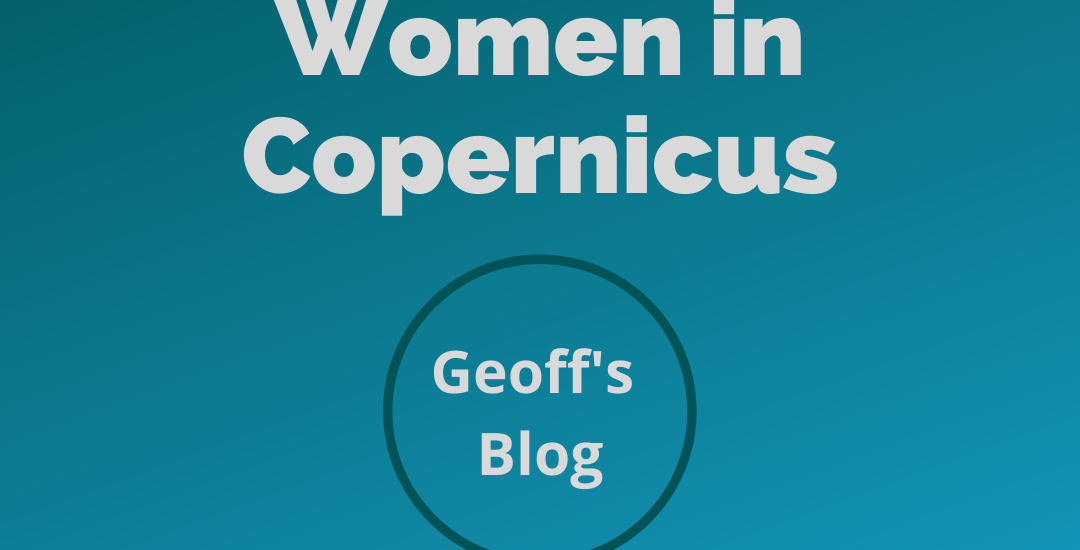- September 29, 2020
- Posted by: EARSC
- Categories: Blogs, EARSC News

Many will be following with deep anxiety the latest twist in the US after the untimely death of Ruth Bader Ginsberg. During her time as a supreme court judge, she has done more than anyone to promote people’s rights and especially those of women. If Trump is successful with his nomination of a new judge before the election, the direction of travel for these rights looks to be set back for a generation.
I write this following the most recent EARSC eocafe where the topic for discussion was “Women in Copernicus”. Nathalie Stefanne (geomatics specialist with the Wallonia public authority) is the mind behind a project to seek to give a stronger voice and visibility for the women working with Copernicus. The project, led by Marie Jagaille from GIS Bretel ( Ingénieur d’études “Applications Spatiales” et animation de projets ), aims to create a community of women (and men) to identify obstacles and opportunities for women and to provide inspiration for young girls setting out on their careers.
This is so important. As we noted during our discussion, young girls lack role models in the space sector. Whilst the EARSC secretariat is doing its best to counterbalance, if we look at the EARSC board of directors, we have 11 men and just 1 woman on the board. Is this really making best use of the skills available?
I think this is an important subject to bring the best people into positions to develop a world-class European technology and business base. In our annual survey of the European EO services sector, we find that the proportion of women in the sector is around 30% and is pretty stable at that level. We shall investigate in our next survey to see if this is changed but somehow, I doubt it. What can be done to change this?
For me, this does not mean that we should be setting targets or quotas. This does not help to develop excellence. It is a societal problem. Ruth Bader Ginsberg was clear that she was not in favour of positive discrimination when she said: “I ask no favour for my sex, all I ask of my brethren is that they take their feet off our necks”.
Our sector is not alone. Just this week, the economist published an article commenting on the appointment of a woman to be CEO of Citigroup (US banking group) bringing to 37 the number of female CEO’s at the head of the Fortune 500 companies. Also, as reported in the Guardian, the Gates Foundation has just published a report, analysing stories across six countries, saying that “Women’s voices have been “worryingly marginalised” in reporting of the coronavirus, partly due to the war-like framing of the pandemic. The Guardian article shows the extent to which men dominate the story from 100% in the UK and more than 80% in 4 of the other 5 countries.
So how to change things? Change needs to start early when girls are setting out their choices and deciding their careers. We men need to do better as well. For the eocafe, we had 54 participants of which 4 were men, and only one (Stephane Ourevitch) was from outside the EARSC secretariat! This is not good enough and is a strong indicator part of the problem; men do not see it as a problem. But that means a lot of latent talent and potential talent is not being used. If we want our sector to do better, we can start by encouraging more girls to join our industry and to make sure that they are given equal opportunity to develop within the industry.
WIC plans to launch a survey directed at the men in our sector. I hope that we can count on better male participation than last week.
